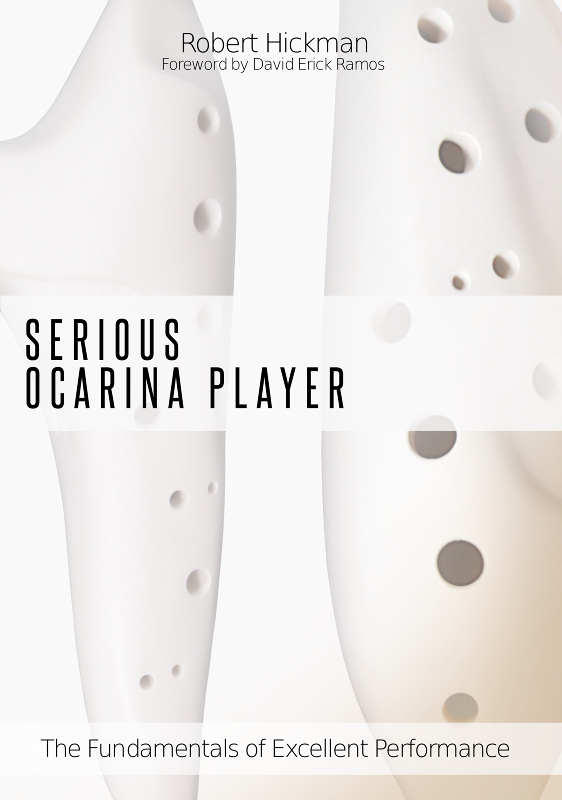The ocarina is a wind instrument most notable for its pure ethereal tone. Quality transverse ocarinas are capable of creating everything from beautiful, mournful, slow melodies to highly ornamented tunes. They have a straightforward fingering system similar to a flute or tin whistle, and are fully chromatic. Most ocarinas are small, easily slipped into a pocket or bag, and played wherever it takes your fancy.
Yet, despite their apparent simplicity, playing the ocarina well can be difficult. Often, the approaches which are intuitive lead to bad technique, and there are many hidden challenges. Serious Ocarina Player will give you a solid foundation and help you avoid common pitfalls, preparing you to play better and faster.
Control your own journey
Serious Ocarina Player teaches the ocarina, music, and the practice process from first principles. It guides you to understand how the ocarina and music practice works, enabling you to create a practice approach tailored to your needs, and play the music you want to play,
The book seeks to never leave you asking 'why is this useful to me', it explains the design ideas behind exercises, and shares examples from which you may extrapolate. The examples are beginner friendly, and teach principles applicable at any level.
Do you prefer to play by ear instead of reading sheet music? You're free to do so.
All of the details
The process of playing musical instruments is complex, and beyond a certain point it is not possible to simplify it. Oversimplification ultimately limits the ability of player by omitting critical information, or causing confusion because some skills come naturally to some people, but not for everyone.
Serious Ocarina Player walks through everything that goes into playing ocarinas well from the most fundamental level. For example, you'll learn rhythm by first exploring what it sounds like when a note comes early or late, and build intricate performance on this foundation.
Interactive elements
Unique to the online version of the book are interactive elements providing visual and audio examples, and offering you practice tools like a metronome and chromatic tuner exactly when you need them.
Kinaesthetic from the start
A kinaesthetic response is an autonomous association between a trigger and a result. You may for instance think 'I want to go there', and the actions of getting up and walking happen automatically.
Kinaesthetic responses can be used in many aspects of music, like being able to look at notation, or hear a song, and just know how to perform it. Serious ocarina player seeks to help you develop kinaesthetic responses directly, without slow and cumbersome logical analysis.
What is included in Serious Ocarina Player?
The basics
- The history and capabilities of the transverse ocarina.
- Identifying ocarinas designed as serious instruments, and how to choose one.
- Single chamber versus multichamber ocarinas.
- Understanding ocarinas in different keys and octaves.
- The different kinds of timbre and playing characteristics ocarinas can create.
- The fingering systems of single chamber and multichamber ocarinas.
How to start playing
- Holding ocarinas, and avoiding hand pain.
- Blowing an ocarina to create a clean, controlled tone.
- Effortlessly playing the high notes of single chambered ocarinas.
- Playing in tune, and understanding the impact of ambient temperature.
- Reading sheet music and playing by ear.
Developing your technique
- How to approach practice in an effective way.
- Identifying playable music, and adapting music to the ocarina.
- Performing and using Classical and Celtic articulation/ornamentation.
- Recording an ocarina in a studio setting.
Frequently asked questions
Finally, this book contains answers to many frequently asked questions, such as:
- Is the ocarina easy to play?
- Is the ocarina a good instrument for young children?
- Why does my ocarina have airy high notes?
If you have questions about playing the transverse ocarina, look no further than 'Serious Ocarina Player'.
